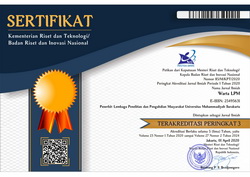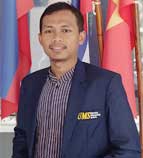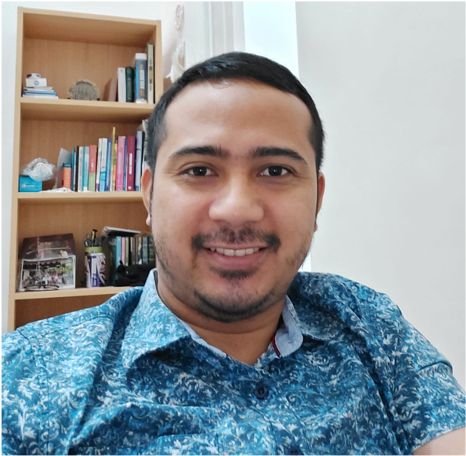The Role of Endris Foundation in Supporting Underprivileged Communities in Gerung Subdistrict, West Lombok Regency
DOI:
https://doi.org/10.23917/warta.v28i2.10718Keywords:
empowerment, Endris Foundation, health, social assistance, social institutionAbstract
This study aims to describe the role of Endris Foundation as a community-based social institution in assisting underprivileged communities in Gerung District, West Lombok Regency. Using a descriptive qualitative approach, data were collected through in-depth interviews, participatory observation, and documentation involving 10 informants, including organizational staff and aid recipients. The findings show that Endris Foundation provides two main types of assistance: material support, such as wheelchairs and food packages, and service-based support through medical accompaniment. The wheelchair aid improved mobility for 10 elderly and disabled recipients, while the medical assistance facilitated access to healthcare services for five families. In addition, food distribution helped reduce household economic burdens. Key challenges included family resistance to medical intervention, lack of transparency regarding beneficiary conditions, and communication gaps with village authorities over activity documentation. This study recommends implementing health education for beneficiary families and establishing formal coordination between the foundation and local government to strengthen collaborative efforts. The findings reinforce the vital role of community-based social institutions in addressing disparities in access to basic public services, particularly in areas with limited infrastructure.
Downloads
References
Adisasmito, W. (2016). Sistem Kesehatan: Konsep, Komponen, dan Strategi. PT Rajagrafindo Persada.
Amartya, S. (1999). Development as Freedom. Oxford University Press.
Freeman, R. E., & Velamuri, S. R. (2008). A New Approach to CSR: Company Stakeholder Responsibility. SSRN Electronic Journal. https://doi.org/10.2139/SSRN.1186223
Hardjanto. (2017). Manajemen Pelayanan Sosial. PT RajaGrafindo Persada.
Herlina, L. (2023). Perspektif Mahasiswa Muslim FKIP Universitas Mataram terhadap Ajaran Islam dalam Tradisi “Nyongkolan” sebagai Bagian dari Prosesi Pernikahan Masyarakat Adat Sasak Lombok. MANAZHIM, 5(1), 536–548. https://doi.org/10.36088/MANAZHIM.V5I1.3032
Lano, Kevin. (2021). Agile Model-Based Development Using UML-RSDS. CRC PRESS. https://www.routledge.com/Agile-Model-Based-Development-Using-UML-RSDS/Lano/p/book/9780367782856
Lasker, R. D., & Weiss, E. S. (2003). Creating partnership synergy: The critical role of community stakeholders. Journal of Health and Human Services Administration, 26(1–2), 119–139. https://doi.org/10.1177/107937390302600104
Levey, S. author. (1984). Health care administration : a managerial perspective. https://lib.ui.ac.id
M. Reza Saputra. (2025). Implementasi Nilai-Nilai Etika Organisasi Dalam Meningkatkan Kinerja dan Pendewasaan Berorganisasi di HIQMA UIN Syarif Hidayatullah Jakarta. Journal of Management and Social Sciences, 4(1), 217–237. https://doi.org/10.55606/jimas.v4i1.1764
Midgley, J. (2014). Social Development: Theory and Practice. Sage.
Moleong, L. J. (2017). Metode Penelitian Kualitatif. PT Remaja Rosdakarya Offset.
Nutbeam, D. (2000). Health literacy as a public health goal: a challenge for contemporary health education and communication strategies into the 21st century. Health Promotion International, 15(3), 259–267. https://doi.org/10.1093/HEAPRO/15.3.259
Nyoman Yuliarmi, N., Marhaeni, A., N Saskara, I. A., Arka, S., & P Wiagustini, N. L. (2020). Keberdayaan Industri Kerajinan Rumah Tangga Untuk Pengentasan Kemiskinan Di Provinsi Bali (Ditinjau dari Aspek Modal Sosial dan Peran Lembaga Adat). PIRAMIDA. https://ojs.unud.ac.id/index.php/piramida/article/view/9788
Porter, C. M. (2016). Revisiting Precede-Proceed: A leading model for ecological and ethical health promotion. Health Education Journal, 75(6), 753–764. https://doi.org/10.1177/0017896915619645
Puspito, I., & Rosiana, R. (2022). Pentingnya Peran Orang Tua Dalam Mendidik Anak. Inculco Journal of Christian Education, 2(3), 298–310. https://doi.org/10.59404/IJCE.V2I3.134
Putnam, R. D. (2000). Bowling Alone: America’s Declining Social Capital. Culture and Politics, 223–234. https://doi.org/10.1007/978-1-349-62965-7_12
Ronasifah, F. (2019). Peran Lembaga Swadaya Masyarakat (LSM) Cakrawala Keadilan Dalam Pemberdayaan Lingkungan (Studi Tentang Gerakan Peduli Sampah Di Desa Paciran Kecamatan Paciran Kabupaten Lamongan). Respon Publik, 13(3), 53–61. https://jim.unisma.ac.id/index.php/rpp/article/view/3698
Setiawan Chaniago, D., & Puspa Rani, A. (2019). Peran Lembaga Sosial Kemasyarakatan dalam Pengelolaan dan Pemanfaatan Hutan. RESIPROKAL: Jurnal Riset Sosiologi Progresif Aktual, 1(1), 14–30. https://doi.org/10.29303/RESIPROKAL.V1I1.2
Sholikhah, N. A. (2021). Peran lembaga filantropi untuk kesejahteraan masyarakat global (Studi kasus pada Aksi Cepat Tanggap Madiun). Journal of Islamic Philanthropy and Disaster (JOIPAD), 1(1), 27–42. https://doi.org/10.21154/JOIPAD.V1I1.3051
Soekanto, S. (2014). Sosiologi Suatu Pengantar. PT Raja Grafindo Persada.
Sugiyono. (2020). Metode Penelitian Kualitatif. Alfabeta.
Sujarweni, V. W. (2014). Metodeologi Penelitian . Pustaka Baru Perss.
Yusuf, R., Hendrayati, H., & Adi Wibowo, L. (2020). Pengaruh Konten Pemasaran Shopee Terhadap Keputusan Pembelian Pelanggan. Jurnal Manajemen Pendidikan Dan Ilmu Sosial, 1(2), 506–515. https://doi.org/10.38035/JMPIS.V1I2.289
Downloads
Submitted
Accepted
Published
How to Cite
Issue
Section
License
Copyright (c) 2025 Warta LPM

This work is licensed under a Creative Commons Attribution 4.0 International License.














